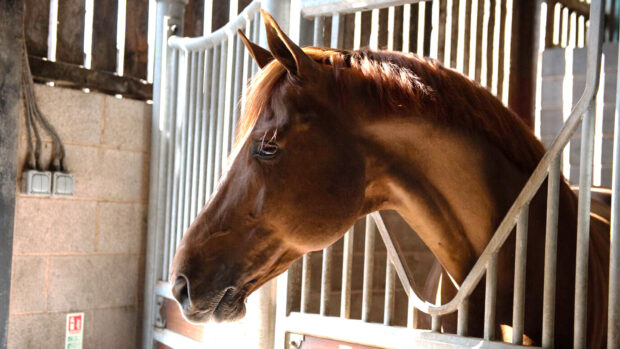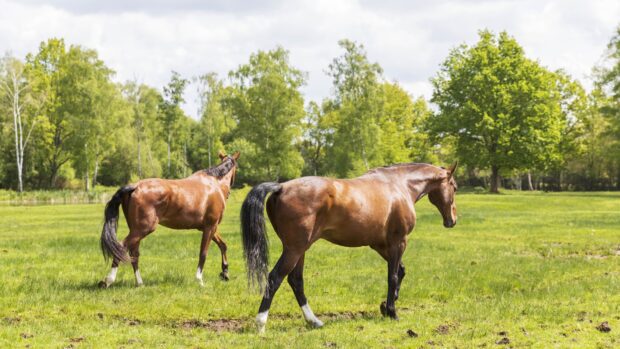A Horse & Hound Podcast Advertising Series with Dengie
Welcome to the second episode of the Dengie digestive health series, a Horse & Hound Podcast advertising series, in which our regular host Pippa Roome chats to five-star event rider Alex Bragg and Dengie’s technical and product development manager Katie Williams about feeding performance horses to avoid and manage gastric ulcers.
This is the second in a three-part podcast series, produced in partnership with Dengie. You can listen online here or via your favourite podcast app.

The Dengie digestive health series: episode one | A Horse & Hound Podcast advertising series

How to listen to the Horse & Hound Podcast: a beginner’s guide to podcasts
Inside the Dengie digestive health series podcast: episode two
Five-star eventer Alex Bragg describes himself as “a bit of a magpie” when it comes to gleaning information from external sources to improve the management of his horses. He credits Dengie with helping him find a feeding system that works for all his horses, from youngstock and his daughters’ ponies and horses, right through to his elite eventers.
“Dengie have come in with their wonderful nutritionists, who are just the wealth of knowledge, and they’ve really helped us to understand how we can help our horses,” he explains.
“In the winter the horses will be fed twice a day, minimum, that’s morning and evening. If there are any horses that need to put on extra weight or are in really hard work, then they may get a smaller lunchtime feed as well so we can split the volume of feed that they’re having. If the horses are getting fed little and often their appetites seem to be better.
“As I think we should all know now, horses are geared up to eat pretty much all day, so it’s better for them to keep chewing away gently, than it is just to have one massive, concentrated feed in one go.
“To keep a good baseline on everything, if the horses are not in the fields eating grass, then they have hay. We steam all our hay to reduce any dust and they’ll have fairly ad lib hay, which sounds crazy when we’re getting horses fit for top level.
“You see them running at the four- and five-star events and they look very athletic – they look lean at that point, but it’s not healthy to keep a horse skinny. A horse needs to be well in itself for its immune system to work well. So it’s important that we remember they’re horses – to get the best out of them, you’ve got to understand how their bodies work.”
Listen now to episode two of the Dengie digestive health series podcast for more insight from Alex on how he feeds his performance horses to avoid and manage gastric ulcers, as well as expertise from Dengie’s technical and product development manager Katie Williams




